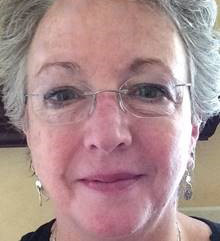Desire as a Personal Power
We generally do not think of desire as a form of empowerment. But it is actually a personal power of immeasurable influence. The problem is that most of us don’t live out of desire. We live, rather, out of should, ought to, have to, obligation, loyalty and lots of other synthetic demands. These synthetics were manufactured in a society that demands that we conform to its obligations to image as a way of maintaining the social order.
Most of us have a long list of obligations, duties, shoulds, ought tos, have tos. We have to go to work, we should spend quality time with the kids and the spouse, we ought to be there for Mom or Dad, we have a duty to be there for our friends, the church, temple or mosque in which we participate, and we are loyal to the government, city, state and federal. All of these obligations and duties, tie us to the mule, so that the mule and its labor are our only focus. Desires come around only when we are exhausted, and with a deep sigh of regret, we implode “I wiiiish I could have….” These longings have been dismissed, repressed, put on the back burner while we live lives full of the synthetic—that is, false, fake, unreal, contrived—obligations placed on us by the external world.
But we are so often afraid to allow ourselves to live out of our desires for fear that they will make us selfish. We will become self-involved, self-absorbed, selfish, self-invested, all-about-me kind of people. Because there is nothing inside of us that desires anything for anyone besides us, right? We want only for ourselves. We never want for anyone else. But think about it. Is that really true? Don’t we also have deep desires for the happiness of our loved ones? Don’t we long for that? Even when they are making all the wrong decisions, going down all the wrong paths, aren’t we praying, pleading, cajoling for them to choose a life with more promise of happiness?
What we don’t know, have not been taught, is that compassion is also a desire. We have not been taught this, however, because we have all made an under-the-table of consciousness agreement to deny that the inner world has anything of importance to give us. Rather the should, have to, ought to, of the external world’s bidding is what we are obligated to do. We have all agreed with the powers that be that the inner world is of no value, while the mores of society are the truth. Therefore, body image, ego, ego aggrandizement and obligation are the orders of the day.
But if we look within, we find all manner of interesting messaging systems and personal powers. Desire is a personal power. It asserts the authentic Self in the real world, that is, IF we allow it to have a say in our decision-making processes. Desire is a sacred connection to the authentic Self. In expression, it is an I AM. In fact, the ancient root word for the Jewish God is desire. It is hava’ ‘aher hava’, which has been translated as I AM that I AM. The word hava’ means to fall, to exist, to become, to happen. It is rooted in ‘avah, which means desire, incline, covet, wait longingly, wish, sigh, want, be greedy, prefer, crave, long for, lust after; and in hayah, which means to be, come to pass, exist, happen, fall out. The word ‘aher means which, who, that which, that, when, since, as or a conditional if. The name became Jehovah Hwhy, the existing one, the primitive root words of which are hyh (hyh), to be and hwa (hwa), to desire.
Of course the Jewish God is not everyone’s God, nor does everyone have or need a God. But the point can be made here that desire is sacred. Yet, we have put it on the back burners of our lives because we fear its power to make us selfish. Indeed, as a general rule, we fear the inner sanctum of the individual and collective humanity.
When we get past the identifications with the external world, however, the desires of the authentic Self are sacred. The do not make us selfish. They make us Self.
~Andrea Mathews
Learn more about Andrea at www.andreamathews.com










